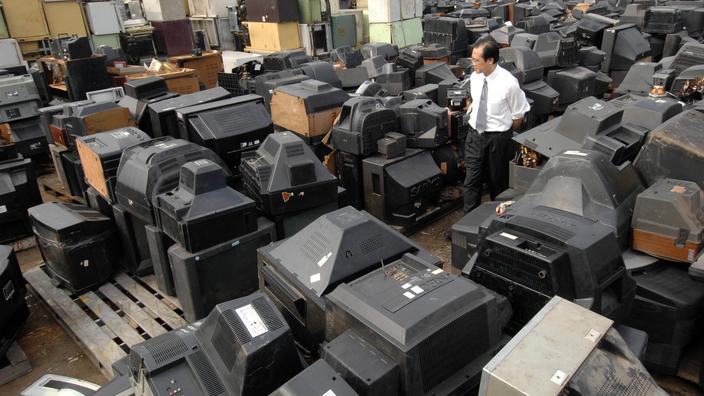More than 500 billion tons of virgin materials have been used in the world since the 2015 climate agreement, of which less than 10% are then recycled, warns a report published on Wednesday January 19, for which the world neglects the climate impact of his appetite for the consumption of goods.
Construction, food, means of transport... 70% of greenhouse gas emissions are today linked to manufacturing production and the use of the goods produced, according to the annual report of the Circle Economy on the consumption of materials.
To discover
SIMULATOR - Are you paid well?
See also2022, the big leap forward in the circular economy
For these researchers, States' climate commitments often focus on emissions linked to fossil fuels, forgetting the growing appetite for products of all kinds.
Only a third of these promises mention the circular economy in their objectives.
“If we rethink our relationship to objects, what would that bring us?
Well, a lot of things”
, according to Matthew Fraser, director of research.
With a more circular economy, resource extraction and consumption reduced by 28%, the world would have a chance of limiting warming to 1.5°C above pre-industrial levels, according to the report.
The necessary “repairability”
But today, humanity consumes 70% of virgin resources in excess of their capacity for renewal.
Based on trade flows, The Circle Economy estimated that materials consumed annually fell from 89.8 billion tonnes in 2016 to 101.4 in 2021. In 2020, only 8.6% was subsequently recycled, l Essentials end up as waste, with consumer demand outpacing real efforts to recycle and reuse.
"Even if the goods are becoming more efficient - smaller computers, lighter cars, improved recycling... - this does not compensate for the growth in demand"
, observes Matthew Fraser.
Read alsoCircular economy: the French can do better
Sectoral improvements can still come, but will not dispense with an overall reduction in consumption: for the researcher, the model which in rich countries today allows a product manufactured on the other side to be delivered in a few hours of the globe
"will inevitably have to change"
. The report also mentions the necessary repairability of electrical equipment (which contains precious metals), advocates a restriction of single-use plastics, the rise of sharing and rental. Construction also has a lot of room for improvement, he notes, by developing more environmentally friendly methods of deconstruction.
It is also up to governments to reorganize their support systems, so that it finally costs less to use recycled materials rather than new ones.
“Could we be more strict about the metabolism of our economy?
In the same way that you would not like to consume junk food all the time”
, asks the researcher.
The question remains
"a blind spot"
for States, which do not even measure their
"material" footprint,
he regrets, anticipating possible pressure to come from public opinion.

